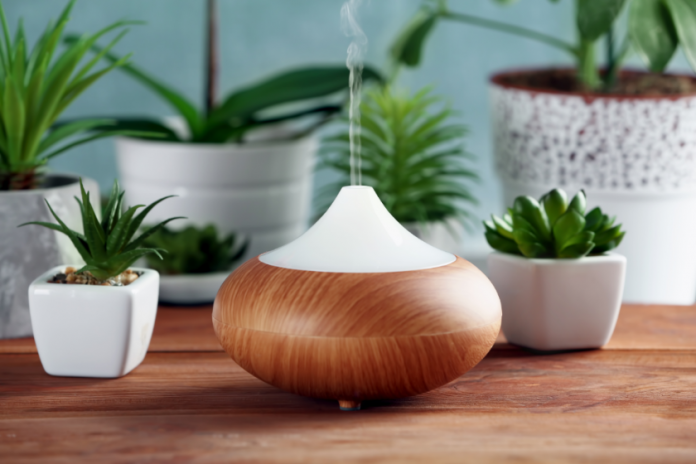
A diffuser is a handy little machine that will help you enjoy the therapeutic value of your favorite essential oils in a safe manner. To make your aromatherapy experience as enjoyable as possible, you will first have to find a diffuser that fits your usage intentions.
Taking into consideration the size of your room, noise level you can live with, and the price is just as important as the exterior look of the unit.
Here are some things you should consider when purchasing an essential oil diffuser:
1. There Are Different Types of Oil Diffusers
There are different types of diffusers available on the market, each type bringing its own features to the table. Here are the most popular types of diffusers and their main traits:
- Ultrasonic diffusers require water for their functioning. They produce high-frequency vibrations that disperse fine water-essential oil mist into the air. Ultrasonic diffusers are extremely popular because of their safeness, quietness and easy maintenance.
- Nebulizing diffuser is the most powerful type of diffuser. Nebulizer diffusers disperse mist into the air directly from the essential oil bottle without the use of heat or water. Dispersed nano-particles are not adulterated.
- Heat diffuser evaporates essential oils with the help of heat generated by a candle. The construction of these diffusers resembles a small fireplace with a try above the flame.
- Evaporative diffusers use a fan to spread the oil essence from a cotton pad or filter into the air. The downside of this method is that heavier molecules within oil sink to the bottom of the cotton pad while the lighter ones stay at the top.
Read more about effective ways to use essential oils
2. Space Coverage and Vapor Output
You have to keep in mind the size of the room in which you intend to use your diffuser. Heat, evaporative, and ultrasonic diffusers with a water reservoir below 300 ml are sufficient for kids' rooms, bathrooms, offices, and other small places. Large rooms, on the other hand, require diffusers with much strong vapor output.
Nebulizers and ultrasonic diffusers are the best diffusers for large spaces. Nebulizers can cover up to 1000 sq ft with strong and unadulterated essential oil mist. Ultrasonic vapor output may not be as strong, but with a water tank of at least 400 ml, the unit can cover more than 300 sq. ft.
3. Time Settings
Time settings allow us to determine the duration of our aromatherapy. Ultrasonic diffusers are known for their variety of options and settings. More often than not, their timer can be set for an hour, 3 hours, 6 hours or on continuous mode. If you plan on using the diffuser during sleep, look for a unit with an 8 hour time setting with an auto-shutoff feature. The automatic shutdown will give you a piece of mind during the night.
If you intend on using your diffuser during the day when studying or in your office, look for a unit with 1, 2, and 4-hour timer. Nebulizers usually offer a 2-hour intermittent cycle with 2 minutes on and 1 minute off intervals.
Can you smell your way to better with essential oils?
4. Noise Level
Diffusers with a large fan and rough motor can be quite noisy and frankly annoying. If you are easily distracted by buzzing noise or if you are a light sleeper you may want to purchase a heat or ultrasonic diffuser. Heat diffusers have no motor while ultrasonic diffusers emit silent hum that will not ruin your aromatherapy experience.
Nebulizers, on the other hand, are much noisier than the rest. Simply chose a unit that does not produce more than 23 decibels.
5. Price and Guarantee
Price quite often determines our final purchase decision. The cost of diffusers varies based on their price, features, and brand name. The starting price of nebulizers is about $50 while ultrasonic diffusers can be found even below $20.
Regardless of how much money you are willing to spend on your diffuser, you should always make sure that a warranty for broken parts or a money back guarantee is included in the deal. Accidents happen, and it is much easier to break the glass top of nebulizer than one would think.




